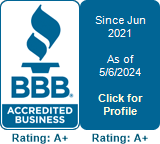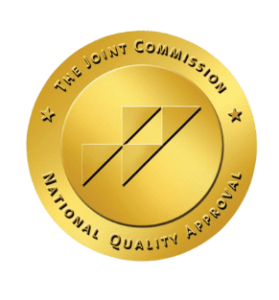
Common Myths When Someone Is Struggling With Addiction
When you’re trying to help someone struggling with addiction, you may learn that the reality of the situation is subject to a lot of misconceptions. Part of this is due to the social stigmas surrounding addiction and addicts but also a lack of firsthand experience many people have with addiction. Unfortunately, these myths can have very real effects on recovery.
Keep reading to learn more about the most common misconceptions and what to expect in reality.
The Problems With Perpetuating Addiction Myths
Like most things, the topic of addiction is susceptible to myths that may not always reflect reality. When you don’t have firsthand knowledge of how addiction works, it’s easy to take depictions of addiction and addicts in pop culture at face value. However, these myths can lead to real-world problems:
For Individuals
When someone is struggling with addiction, misunderstanding the reality of what they’re up against can cause them to refuse to acknowledge their need for help or even admit they have a problem to begin with.
For Family Members
Addiction myths can also mislead people who are trying to help loved ones struggling with addiction. When they don’t have an accurate understanding of the situation, they are rarely equipped to provide meaningful support.
For Society
When myths about addiction take root in society at large, these misconceptions can lead to misrepresentation in popular culture, widening the divide between the general public and people dealing with addiction.
Do you know someone who’s experienced setbacks on the road to recovery? A sober companion can help them stay the course in daily life.
What Are the Most Common Addiction Myths?
In our experience, some of the most frequent addiction misconceptions we encounter include:
Myth 1: Addiction Is an Even Playing Field
Myth: One of the most common myths about addiction is that the recovery process is an even playing field for everyone. The challenges that one addict encounters are the same ones all addicts encounter. Everyone is dealing with them in the same way with access to the same resources and treatment options.
Reality: Addiction recovery is not an even playing field. While the nature of addiction is fundamentally the same, everyone starts at a different point, deals with a unique set of challenges, and has their own past to confront, which makes recovery more complex than it may first seem.
While addiction can affect anyone across any segment of society, there are certain risk factors that increase the likelihood that an individual will struggle with addiction at some point in their lives, including:
- Genetic predisposition
- Environmental factors like family support and early exposure
- A history of trauma
- Personality traits and tendencies
Additionally, insurance plays a significant role in determining what recovery options are available to individuals, and certain people may have access to different treatment options than others. Everyone has different levels of coverage, and some individuals may be able to pay out of pocket for treatment while others may not.
Ultimately, all of these factors mean that the addiction recovery path looks a little different for everyone, and each person’s situation is different.
Myth 2: After Completing Rehab, the Hard Work Is Over
Myth: Another common myth is that when someone successfully completes an inpatient rehab program and returns home, they are “cured” and can go on to live their life like they never had an addiction at all. Many people leave rehab thinking that the hard work is behind them and they can resume their lives as normal without having to think about recovery.
Reality: In reality, most people relapse after completing rehab, often because they don’t put enough effort into aftercare treatment and relapse prevention. The hardest work is actually just beginning when someone completes rehab. That’s because rehab allows individuals to recover in a safe, protected environment where they’re not exposed to real-world triggers.
Most people need additional help and support to successfully navigate life after rehab, especially when they encounter high-risk situations. Some people find a sober companion extremely beneficial during the transition between rehab and real life as they work to integrate what they learned in rehab into their everyday routine.
Myth 3: Others Will Judge You for Seeking Help
Myth: Many people struggling with addiction believe that others will judge them for seeking help. They think they’ll be seen as weak for admitting they have a problem with drugs or alcohol—a problem that they’ve been able to conceal from the people around them.
Reality: When struggling with addiction, individuals often think they’re hiding the nature of their problem. In reality, however, the people around them are more aware of what’s going on than addicts themselves. When dealing with addiction, trying to hide the problem becomes a self-defense mechanism, protecting them from having to confront the issue, and if they’re able to keep it hidden from others, they can continue feeding into the addiction.
Instead of judgment, people living with an addict more frequently feel elated when that person admits they have a problem. They’re generally already aware of the problem and know their loved one needs help. They care about that person and want them to get the help they need, but they can’t get help if they don’t first acknowledge there’s a problem.
When someone recognizes they need help with addiction, many people around them respect the courage it takes to come clean with such a serious issue. Rather than weakness, admitting they have an addiction takes more courage and strength than continuing to live with the problem.
Myth 4: Success Confirms You Don’t Have an Addiction
Myth: Some people assume that addiction is only a problem among homeless populations or individuals with deeper life challenges—that if a person has a good job or all the ingredients for a happy life, they can’t struggle with addiction.
Reality: Addiction affects anyone, including individuals who are able to hold down a good job and stay on top of their life responsibilities. The person you least expect could be dealing with addiction issues that remain hidden from others, which is often the case with high-functioning alcoholics.
Myth 5: One-Size-Fits-All Treatment Works for Everyone
Myth: Like the myth that rehab is a cure for addiction, a similar line of thinking follows that rehab is a one-size-fits-all solution that works for everyone. Addiction treatment, then, can be standardized to work for anyone.
Reality: Addiction treatment programs can vary greatly, even among residential treatment centers, and many people are unaware of the full range of options available to them. One person may not find success until they’ve tried a variety of rehab programs or treatment plans. The effectiveness of a treatment program for a certain individual can vary due to:
- Treatment philosophy
- Program and therapy options
- Staff
- Location
- Facilities
- Duration
- Privacy
- Aftercare
- Family resources
When rehab doesn’t work, this should not be seen as a sign that treatment does not work. Instead, it’s a sign that someone should continue exploring the full range of treatment paths available to them, including options like at-home rehab and sober companions.
Myth 6: Relapse Is a Failure
Myth: Some people think that relapsing on drugs or alcohol is a sign of failure, that relapse is a sign that someone will never successfully recover from addiction and go on to live a balanced life of well-being. If someone relapses once, they’ll eventually relapse again so they may as well give in.
Reality: Relapse is not the same as failing; it’s just part of the path to recovery for some people. What matters most after a relapse is not that it happened—it’s what you do about it. If an individual uses it as an opportunity to open up to their support network, learn from what led up to the relapse, and take steps to prevent it from happening again, it can ultimately become a positive, instrumental step that helps them work toward their ongoing recovery goals.
Myth 7: Everyone Knows How To Ask for Help With Addiction
Myth: When you’ve never struggled with it yourself, it can be easy to assume that someone dealing with addiction should know when and how to ask for help. Many assume it’s the affected individual’s responsibility to ask for help, and any problems should be ignored unless they bring it up themselves.
Reality: Due to social stigmas, lack of access, fear of judgment, and the cycle of addiction, one of the hardest things an addict often has to do is ask for help. It’s not natural to know how or when to ask for help with such a complex issue, and people who care about them should encourage discussion, listen, and support if they suspect there could be a deeper problem. Opening up can take time, but if an addiction is causing issues, they rarely resolve on their own. Sometimes the best course of action is to ask your loved one if they need help.
Myth 8: Addiction Is Best Overcome With Willpower Alone
Myth: When someone is recovering from addiction, they’re best left to figure it out on their own—that if they’re going to be successful, they should have the strength and willpower to stay sober without the need for support or help from others.
Reality: Addiction thrives in isolation. When someone is left to overcome addiction without a support network or trusted sponsor by their side, their chances of recovery go down significantly. They will encounter times of weakness and temptation. It’s at times like these when willpower is not always enough to stay on track with recovery goals, and having the right support at the right time becomes instrumental.
If you or someone you care about has struggled with recovery due to a lack of support and guidance, having someone like a sober companion can make all the difference.
How a Sober Companion Can Help With Addiction Recovery Care
When working through the struggles of addiction recovery, having a guiding voice who’s available as needed to support your recovery goals is often the piece of the puzzle individuals are missing. That’s where a sober companion can help. They provide around-the-clock assistance as someone learns to navigate sobriety successfully, integrate new skills and tools into their daily life, and avoid common pitfalls during recovery. The best part is that they develop an ongoing relationship that can evolve as individuals gain confidence and strength with their newfound freedom.








